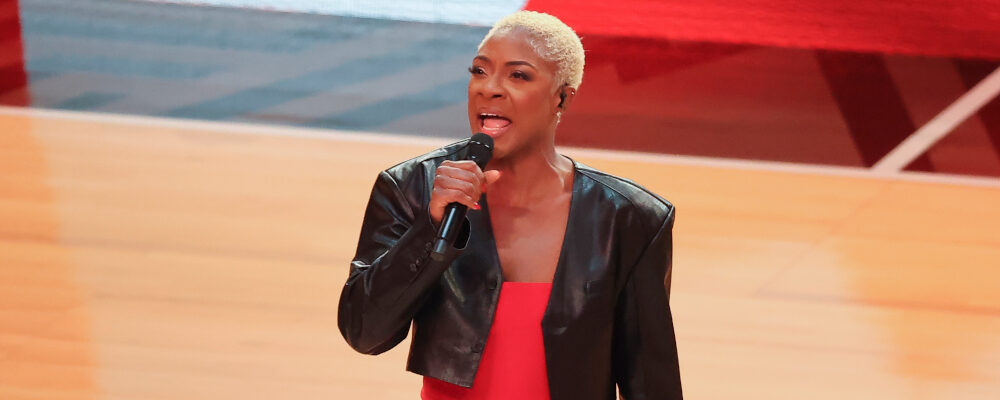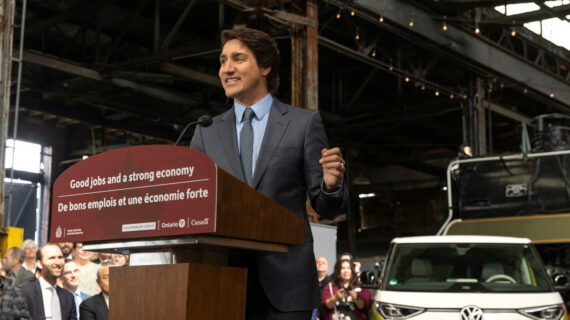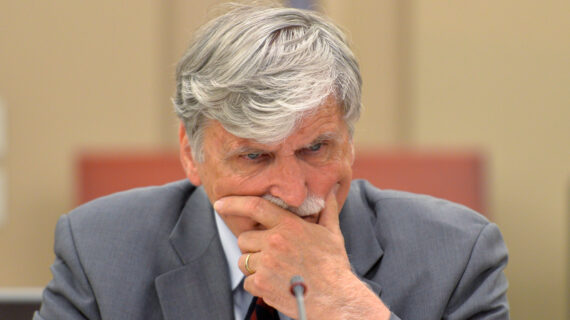She only changed one word, but Canadian R&B singer Jully Black attracted a lot of media attention when she altered the lyrics to Canada’s national anthem at this year’s NBA All-Star Game in Salt Lake City.
Black sang “our home on native land” instead of “our home and native land”—referencing the fact that Canada literally exists on traditional Indigenous lands.
As an Indigenous Canadian, I appreciate any efforts to help move reconciliation forward. However, changing the anthem is not how true reconciliation works. If anything, this only benefited Black’s career.
If she wanted to get noticed, what better way than to do something that would shock the world at the NBA All-Star game? I had no idea who she was until her anthem rendition made headlines. I even had to replay her performance to hear what she said because at first, I thought I was hearing things.
When CBC commentator Shireen Ahmed subsequently wrote an online opinion column applauding Black’s gesture, it struck me as just another instance of someone from another ethnic background proclaiming they are doing Indigenous people a favour. Of course she needed to write about it. Why not? It made world headlines.
Ahmed’s article stumbled when it resorted to name-calling figures like Jordan Peterson and others as right-wing because they disagreed with changing the anthem. Peterson actually has strong ties to Indigenous communities in Canada and Native American communities in the USA. There are people from all political backgrounds who both disagreed and agreed with the lyrics change; many were Indigenous people themselves. This is a nuanced topic, but Ahmed’s simplistic framing has only inflamed racial tensions.
Individuals like Ahmed and Black may think they are doing hallowed work, but if we as Indigenous people are going to abide by our protocols then we must hold others to the same standard, especially when it comes to sensitive topics like our national anthem.
We already have many amazing Indigenous singers who beautifully perform our anthem in Indigenous languages from various nations throughout Canada. Many sporting events do land acknowledgments prior to the game starting; if Black understood protocol, she would have acknowledged the Native American tribe on whose land the All-Star game was played.
Instead, all she did was make it harder for us to move forward in this country. Individuals like her need to understand that Indigenous people want and need to live with 34 million other Canadians.

Although Canada’s land mass is the traditional territory of 600-plus Indigenous communities, our goal is to work together with Canadians to be meaningful partners and good neighbours. We are making strides to be a part of mainstream society. We don’t need any more people making decisions on our behalf or any more virtual signaling messages that only create further divisions.
What Black did is exactly what we so often decry governments for doing: making decisions without the knowledge and permission of Indigenous communities
Many older Indigenous people I have spoken with have mixed feelings about her actions. Most of all, what we’re trying to do is achieve better relationships and tangibly improve not just our own communities, but our country as a whole. The last thing Indigenous leaders need is to make the hill that much more difficult to climb. Perhaps there could be more consensus amongst Canadians if this issue had been broached in a spirit of good faith before action was unilaterally taken.
I am as patriotic as the next Canadian. I have values, including an emphasis to love my neighbour, country, culture, and community. I strive to make sure we find middle ground between mainstream Canada and Indigenous peoples. Not everyone will like every decision that gets made in trying to move forward, but we must work together instead of pushing people away. We need to be respectful and meaningfully engage with the broader society we are a part of. After all, we have a rich Indigenous culture that we want to share with the world.
Moving forward, it is important to keep a clear sense of what reconciliation looks like, and how we can meaningfully contribute to it so that all Canadians feel that they are a part of something special rather than singled out. God knows Indigenous people are all too familiar with that. But as the saying goes, two wrongs don’t make a right.
Let’s be better. Together we are stronger.




